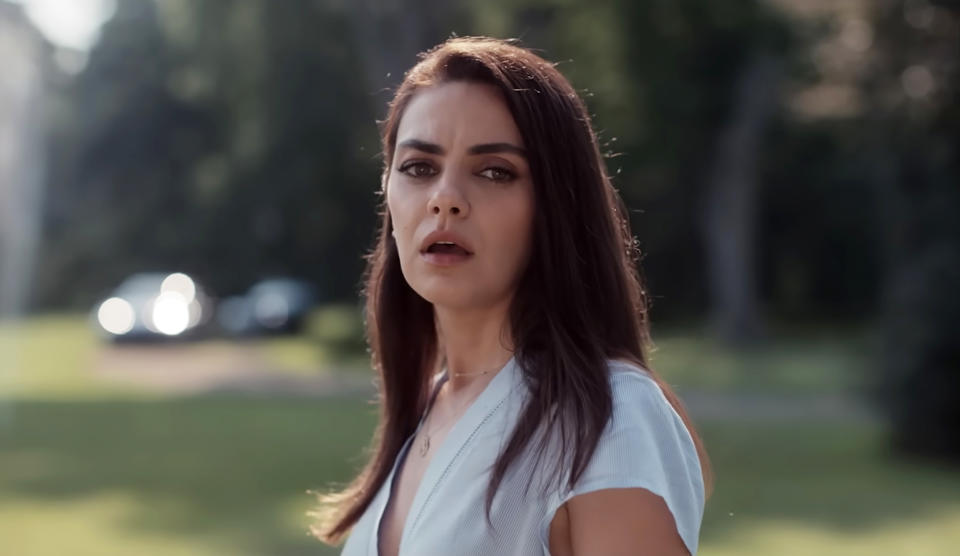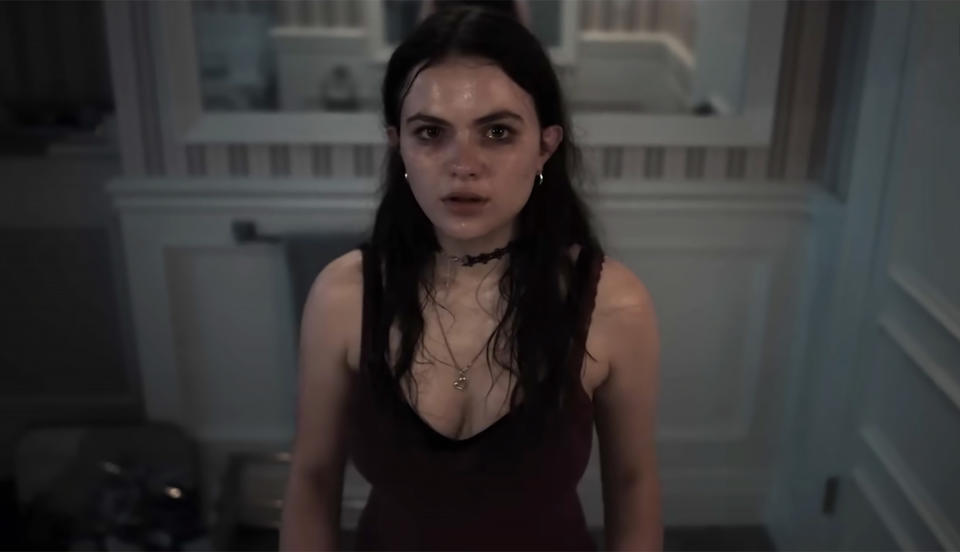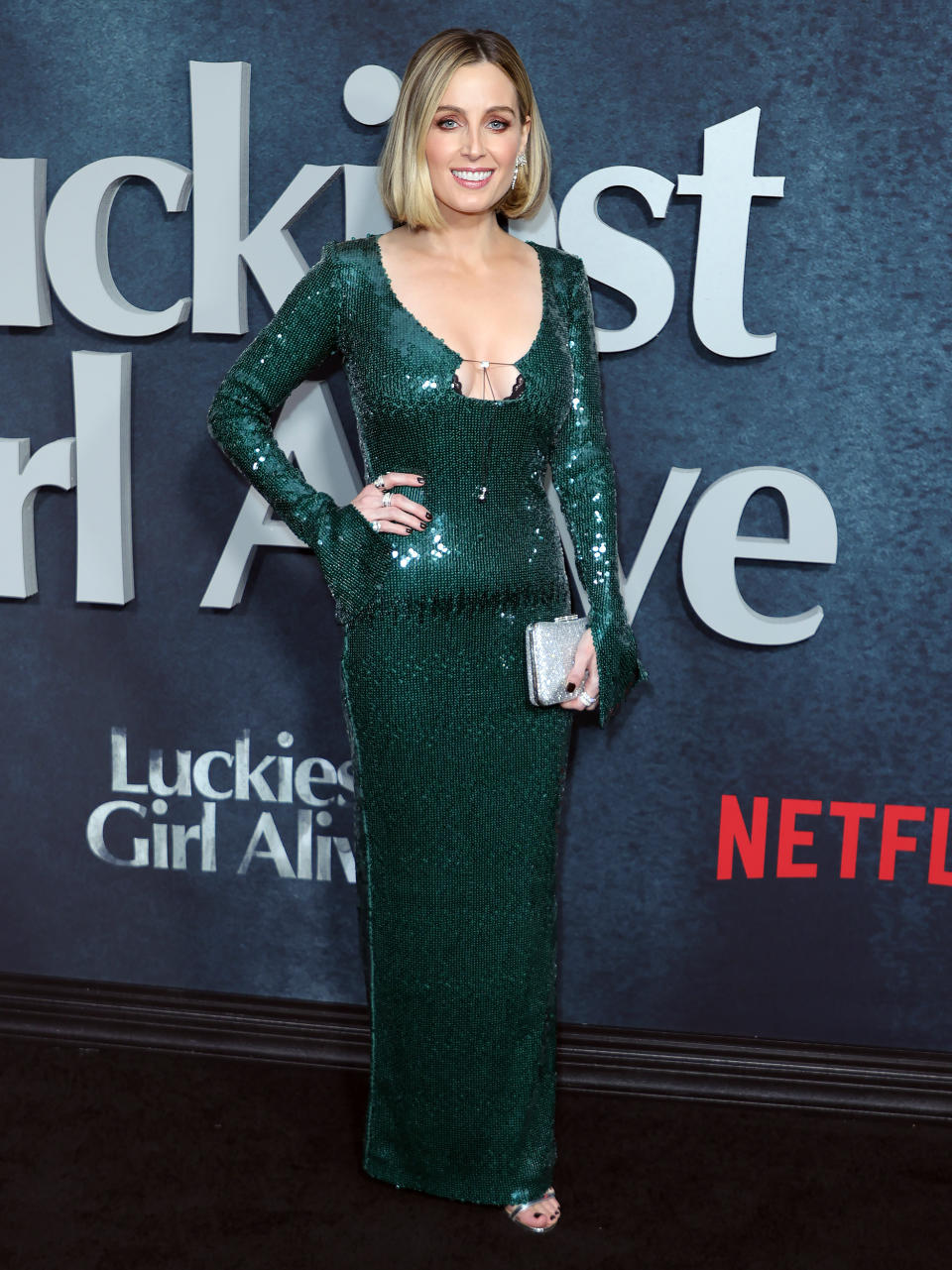The True Story Behind 'Luckiest Girl Alive,' According To Its Author

Warning: The story contains spoilers for the movie "Luckiest Girl Alive."
In case you're not already aware, the title of "Luckiest Girl Alive," a 2015 book by Jessica Knoll turned into a 2022 Netflix movie, is meant to be taken ironically.
On the surface, Ani Fanelli (Mila Kunis) seems to have an enviably picture perfect life: Dream writing job, a wealthy and handsome boyfriend and a killer wardrobe to match. But you can think of these aspects to her life as armor — or maybe a picnic blanket covering up a crater.
Over the course of the book, though, Ani's life unravels as she finally (and publicly) confronts the formative, traumatic moments of her childhood when asked to be part of a documentary.

Author Knoll had to do the same. Speaking to TODAY, she opened up about how her own experiences informed the character of Ani — and why she put it into her art.
As a teenager, Ani — who went by TifAni back then — attended a private high school. A scholarship student, TiffAni (played by Chiara Aurelia) feels out of place with her wealthy and confident peers.
One night at a party, Ani is gang raped by three of her male classmates. In the aftermath, Ani's experiences are downplayed by her peers and doubted by the adults in her life. She was left alone to question what really happened to her, and whether she somehow bore responsibility.

As a student in a private school, Knoll experienced a similar gang rape, and turned her experiences into a "Luckiest Girl Alive" plot point.
At first, Knoll attested the bestselling debut was fiction, but then wrote an essay for Lenny Letter in 2016 explaining the biographical resonances.
“I always feel a little undeserving of being called like brave or courageous, because I had to (open up) in fiction. There were these dueling things inside of me. I desperately craved the release of getting my story out on paper, and the validation of recognizing what had happened to me as rape. I needed that.
“But on the other hand, I was frightened that people would read it and come to the same conclusion that people did when I was in high school, which was that no violation had occurred and that I had somehow participated in it," she told TODAY.
Knoll, who wrote the screenplay and executive produced the movie, chose not to be on set when the assault scene was filmed.
"A lot of that had to do with the fact that I didn't want to make the actors feel uncomfortable," Knoll said. "I'm an executive producer and I wrote this thing and everyone knows that it's inspired by my real life experience. I could tell people were nervous around me. I was like, 'This is a job people need to do and I don't want to make it any more uncomfortable than it needs to be."
While watching the scene during playback, Knoll said she was unable to do what she often does, still: Minimize what happened to her.
"I think I normalize what happened to me so that I can live with it. Then when you see it, you're like, 'Oh, there's no rationalizing here. I don't need to minimize this. This was really bad," she said.
Ani's school year goes from objectively bad to worse later on in the movie, when two of her classmates take guns to the Gothic hallways and begin to shoot.
In the harrowing scene, two of Ani's assailants are killed. Another, Dean, is paralyzed from the waist down. He goes on to become a gun control activist running for Senate. A symbol of resilience to some, Dean is a haunting reminder for Ani of violation.

Knoll was in high school when the mass shooting at Columbine High School in Colorado took place, an event she said always stuck with her — but that's not why she included the sequence in her book.
"I still had the idea in my head that what happened to Ani wasn't bad enough, because that's what happened to me. I thought I had to make it worse," she said.
The shooting also complicates Ani's decision to share what happened to her.
"She's now carrying the fact that they are 'good victim.' They've been gunned down. The community is mourning their deaths. Then, on top of it, Dean does something good and powerful with what happened to him. It becomes even harder for her to come forward," she said.
But both Ani and Knoll eventually do come forward in their own ways: Knoll, with the book. Ani, with an essay that lands her in the public eye — and on TODAY.
Knoll said that the conversation around sexual violence has changed since the book was published in 2015, thanks in large part to the #MeToo movement (#MeToo was coined by activist Tarana Burke).
But she hopes the release of the story on Netflix exposes Ani's journey to more audiences and keeps the conversation going.
"I think the biggest thing would be that maybe more men come to this story, because we're on a platform like Netflix, " she said.
Knoll recalled seeing a sole young man in the audience at a book event in Boston. At first, she worried he was a men's right's activist, arriving to yell at her. "I was so scared," she said.
Then, when he lined up to get his book signed, he asked Knoll if the events were always "like this" — as in, mostly attended by women. Knoll answered in the affirmative.
"He was like, 'Just because the protagonist is a woman doesn't mean that this isn't a book that guys can enjoy too,'" Knoll recalled.
"It was one of those moments in life where you're like, 'I completely judged someone.' You have to give people grace and allow them to surprise you," she said.
Many viewers of the film, which reached No. 1 in the streamer's top movies chart, have expressed their shock over its violent content, demanding a trigger warning.
The twists of "Luckiest Girl Alive" likely surprised you — but the title ends with the most important part. After all that, Ani is still alive. Now, she's living on her terms.
This article was originally published on TODAY.com

